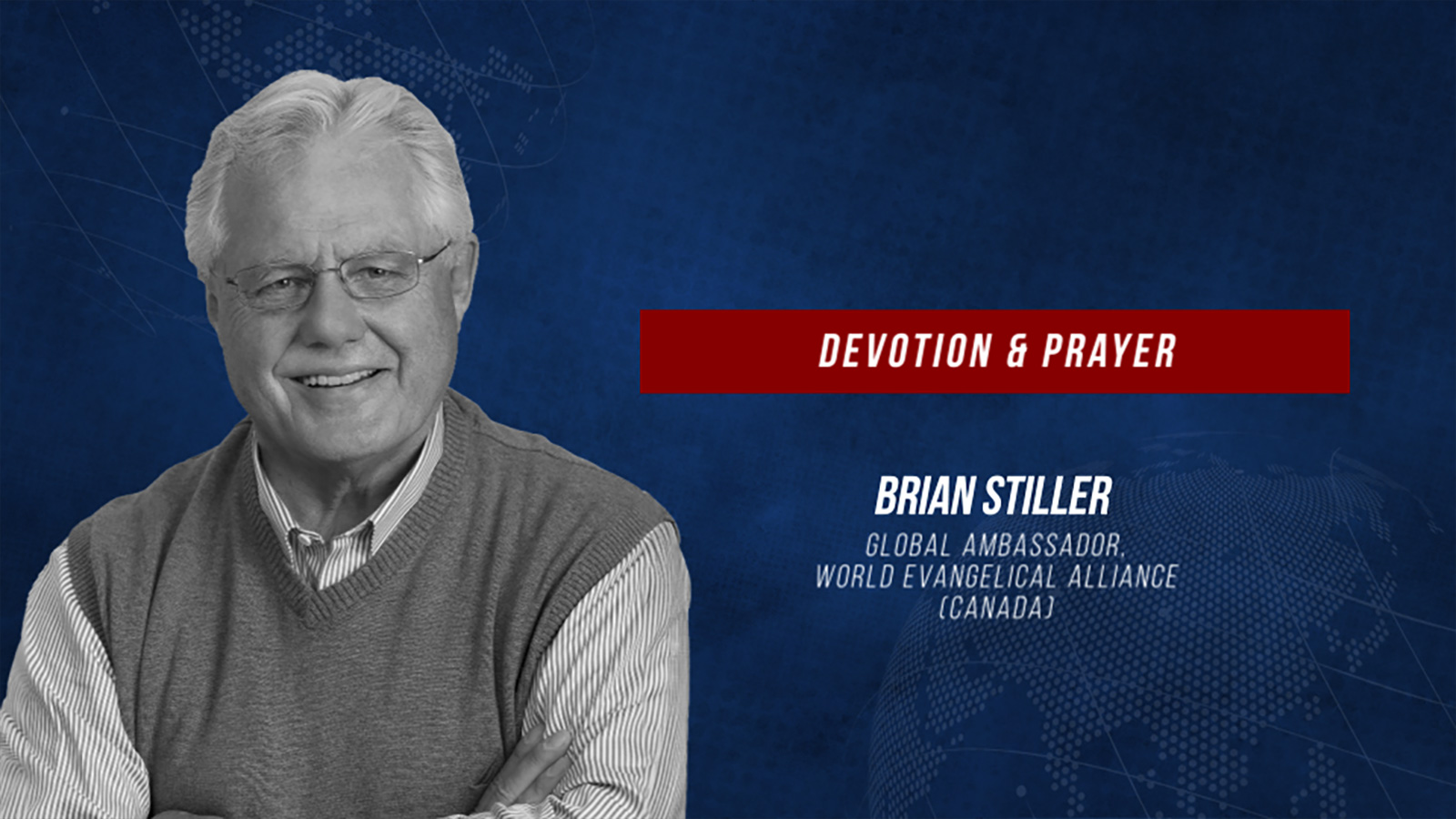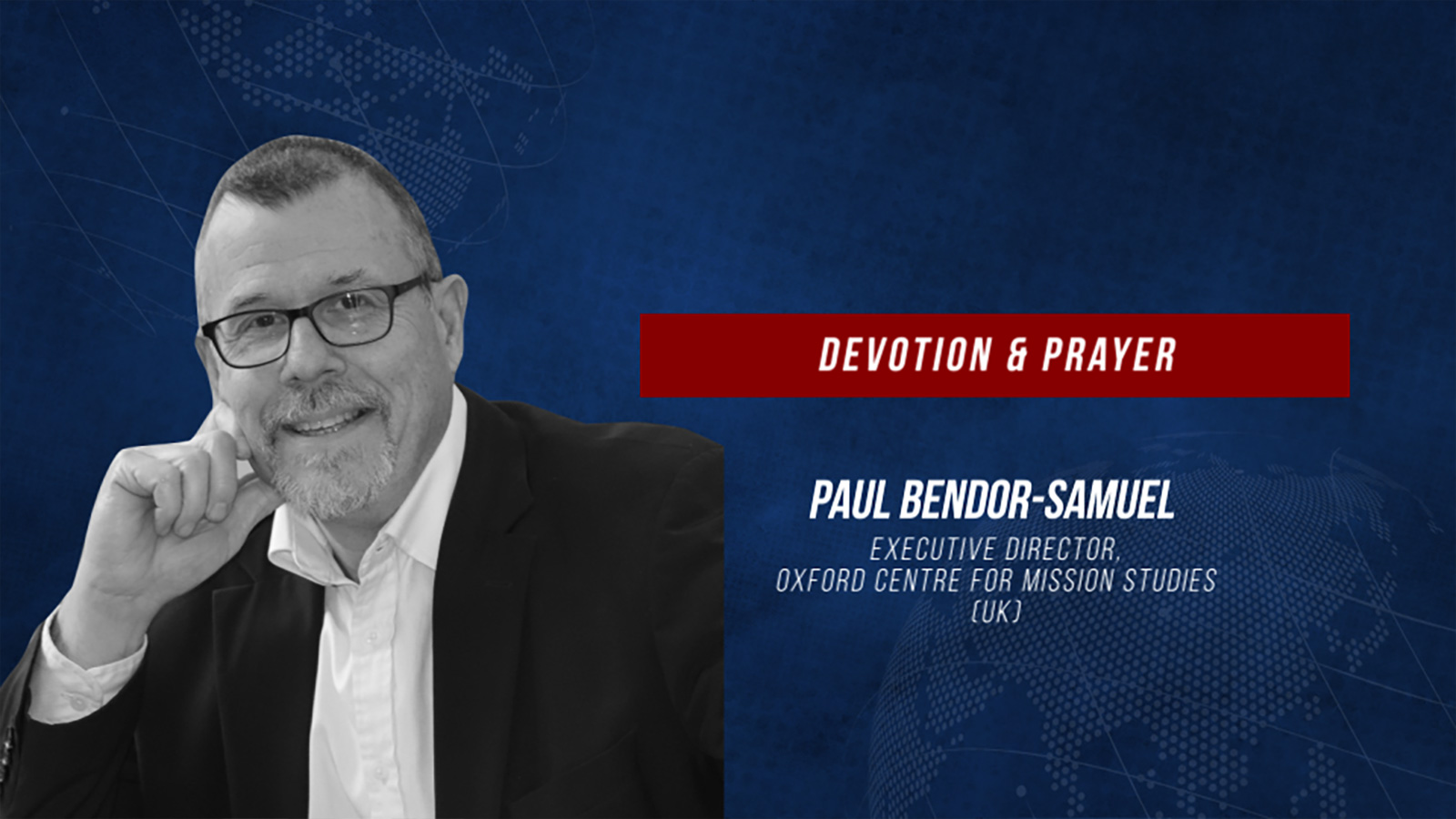Professor of Christian Theology and Pentecostal Studies,
University of Birmingham

Wolfgang Vondey holds a PhD in systematic theology and ethics from Marquette University, an MDiv from the Pentecostal Theological Seminary, and an MA from Philipps University of Marburg.
He is a professor of Christian theology and Pentecostal studies at the University of Birmingham, where he also directs the Centre for Pentecostal and Charismatic Studies. Dr Wolfgang’s research focuses on systematic and constructive theological themes, with a particular emphasis on pneumatology, ecclesiology, and ecumenical studies.
Having taught for 20 years in the United States, Dr Wolfgang founded and directed Regent University’s Center for Renewal Studies. He has published numerous influential works, including Pentecostal Theology: Living the Full Gospel (2017), The Routledge Handbook of Pentecostal Theology (2020), and The Scandal of Pentecost: A Theology of the Public Church (2024). He serves on the editorial board of the Journal of Pentecostal and Charismatic Christianity and is the co-editor of the book series Systematic Pentecostal and Charismatic Theology.
This presentation raises the question of the continuity of the Church with the life of Jesus, that is, what the Scriptures call the scandal of Christ. The use of the term “scandal” is derived from the Greek skandalon as used in the New Testament. In its ancient usage, the root of the term identifies the “means whereby one closes something” and refers to the mechanism sealing a trap to which the bait is mounted. The trigger is the stick or the stone preventing the trap from closing, but once removed, along with the bait, the victim is caught and unable to escape. A typical use of this image in the New Testament is to translate skandalon as “stumbling block,” a metaphor which is applied repeatedly to Jesus and to the gospel. The story of Jesus exhibits a striking pattern of division, culminating in the public scandal of his criminal trial and crucifixion. In turn, this scandal that forms the core of the Christian gospel is itself portrayed as a “stumbling block” to Jesus’ followers, Jews and Gentiles alike. However, very few studies have examined the meaning of this scandal, identified how it works or explored its consequences for the life of the Christian community today. This presentation examines how exactly the scandal of Christ continues to function in the life of the apostolic community and, by extension, in the Church today. It proceeds in four steps: (1) an explanation of the scandal found in the gospel of Christ, (2) the identification of the mechanism of the scandal, (3) an exposition of how this mechanism continues in the church at Pentecost, and (4) a discussion of the way the Church today can endorse this scandal and how this task reflects the challenges the churches face in today’s world.
Many separate the atonement from Pentecost to the degree that the link between them is lost. I wish to explore that link. The link is based on the insight that the cross of Christ is not limited to Israel. Rather, Christ seeks at the cross to open his life to all peoples, redeeming persons “from every tribe, and language, and people, and nation” (Rev. 5:9) and breaking down the wall of hostility between them (Eph. 2:14-16). The Spirit is poured out on all peoples at Pentecost in loyalty to the cross and for the sake of the crucified and risen Christ.
Many separate the atonement from Pentecost to the degree that the link between them is lost. I wish to explore that link. The link is based on the insight that the cross of Christ is not limited to Israel. Rather, Christ seeks at the cross to open his life to all peoples, redeeming persons “from every tribe, and language, and people, and nation” (Rev. 5:9) and breaking down the wall of hostility between them (Eph. 2:14-16). The Spirit is poured out on all peoples at Pentecost in loyalty to the cross and for the sake of the crucified and risen Christ.
Many separate the atonement from Pentecost to the degree that the link between them is lost. I wish to explore that link. The link is based on the insight that the cross of Christ is not limited to Israel. Rather, Christ seeks at the cross to open his life to all peoples, redeeming persons “from every tribe, and language, and people, and nation” (Rev. 5:9) and breaking down the wall of hostility between them (Eph. 2:14-16). The Spirit is poured out on all peoples at Pentecost in loyalty to the cross and for the sake of the crucified and risen Christ.


© 2025 City Harvest Church. All Rights Reserved.
Sign up for news & exclusive content
from Global Pentecostal Voices.
By subscribing, I agree to the Privacy Policy and Terms of Use.